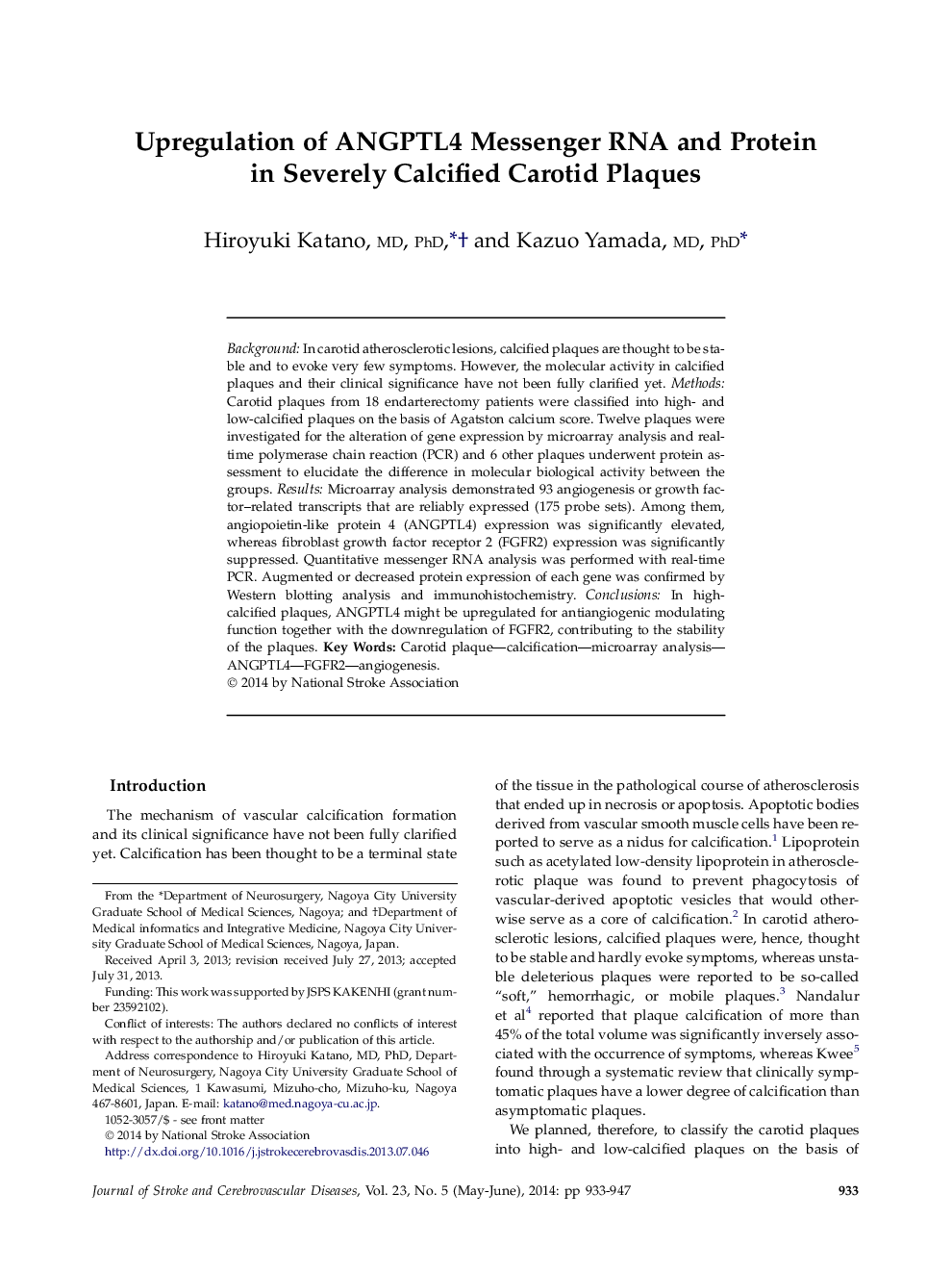| Article ID | Journal | Published Year | Pages | File Type |
|---|---|---|---|---|
| 5875099 | Journal of Stroke and Cerebrovascular Diseases | 2014 | 15 Pages |
BackgroundIn carotid atherosclerotic lesions, calcified plaques are thought to be stable and to evoke very few symptoms. However, the molecular activity in calcified plaques and their clinical significance have not been fully clarified yet.MethodsCarotid plaques from 18 endarterectomy patients were classified into high- and low-calcified plaques on the basis of Agatston calcium score. Twelve plaques were investigated for the alteration of gene expression by microarray analysis and real-time polymerase chain reaction (PCR) and 6 other plaques underwent protein assessment to elucidate the difference in molecular biological activity between the groups.ResultsMicroarray analysis demonstrated 93 angiogenesis or growth factor-related transcripts that are reliably expressed (175 probe sets). Among them, angiopoietin-like protein 4 (ANGPTL4) expression was significantly elevated, whereas fibroblast growth factor receptor 2 (FGFR2) expression was significantly suppressed. Quantitative messenger RNA analysis was performed with real-time PCR. Augmented or decreased protein expression of each gene was confirmed by Western blotting analysis and immunohistochemistry.ConclusionsIn high-calcified plaques, ANGPTL4 might be upregulated for antiangiogenic modulating function together with the downregulation of FGFR2, contributing to the stability of the plaques.
